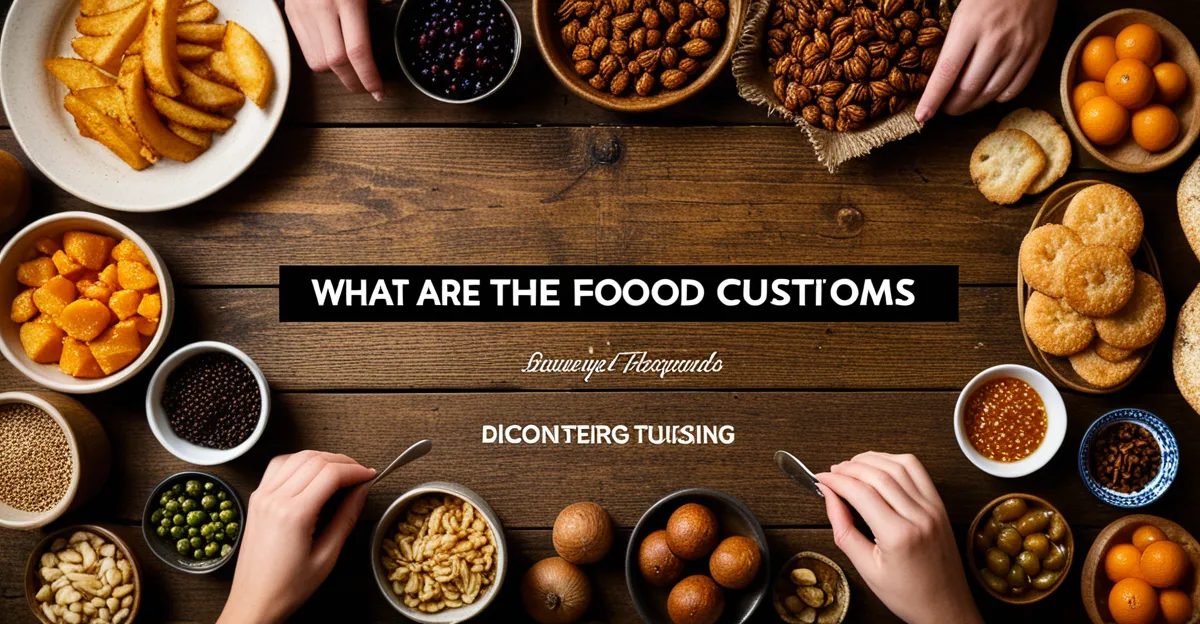Cultural Enrichment Through UK Culinary Traditions
Delving into UK food culture reveals much about British heritage and regional identities. Traditional British cuisine offers a vivid window into centuries of local customs and historical events, shaping the flavors and dishes unique to various parts of the UK. For instance, recipes passed down through generations often reflect the agricultural practices, climate, and social history of a region.
Understanding these culinary traditions provides a deeper appreciation for local festivals and rituals where food plays a central role. Events such as harvest festivals or regional fairs celebrate these shared traditions, intertwining storytelling and communal experiences around food. This immersion reinforces a personal connection to cultural heritage, enhancing one’s identity through the shared joy of traditional dishes.
Have you seen this : How can you achieve the ultimate flavor in a homemade black pudding?
Exploring traditional British cuisine also encourages recognition of the diversity within the UK. From the savory pies of England to Welsh lamb specialties and Scottish seafood dishes, each contributes uniquely to the cultural tapestry. Such exposure promotes cultural cohesion while respecting the distinctiveness of local histories and practices, making UK food culture a powerful channel for cultural enrichment.
Educational Advantages of Exploring Local Cuisine
Exploring culinary education within the framework of UK cooking traditions enriches understanding of not only food but also history and culture. By studying the food history behind iconic UK dishes, such as Yorkshire pudding or Welsh rarebit, learners gain insight into how these recipes evolved alongside social and economic changes. This historical context deepens appreciation for the significance of ingredients and cooking methods unique to the region.
In parallel : How can you achieve the ultimate flavor in a homemade black pudding?
Learning traditional British cuisine techniques—from slow roasting to baking hearty pies—provides practical skills that connect modern cooks with their culinary roots. These methods also reflect resourcefulness shaped by local availability, climate, and historical necessity. Furthermore, understanding the shifts in UK cooking traditions reveals broader social trends, including industrialization’s impact on diets or how wartime rationing influenced culinary creativity.
In sum, delving into culinary education through UK cooking traditions allows learners to see beyond the plate. It links food preparation to cultural identity, social evolution, and regional pride, ultimately fostering a more nuanced appreciation of British heritage and its diverse culinary landscape.
Social and Community Connections Fostered by Food
Food serves as a vital connector in UK culinary experiences, fostering strong social bonds and enriching communities. Shared meals and food-centered events bring people together, creating spaces for interaction and mutual support. These communal gatherings often highlight local specialties, reinforcing pride in food and community traditions.
Supporting local producers plays a significant role in this dynamic. Engaging with farmers and artisans emphasizes the value of fresh, regional ingredients while sustaining local economies. This connection strengthens community identity, linking people directly to the origins of their food.
Moreover, food and community interactions encourage intergenerational storytelling. Recipes and cooking techniques pass from elders to younger generations during shared cooking or festive occasions. This transference preserves cultural knowledge and deepens appreciation for regional culinary heritage.
By participating in these UK culinary experiences, individuals not only enjoy nourishing meals but also contribute to a resilient social fabric. Emphasizing relationships through food builds trust and mutual understanding, pivotal for vibrant communities rooted in tradition and collaboration.
Broadened Palate and Culinary Appreciation
Exploring regional British dishes invites a delightful journey that broadens the palate and fosters a deeper culinary appreciation. Sampling diverse flavors from England, Scotland, Wales, and Northern Ireland showcases how geography and history influence ingredients and cooking styles across the UK. For example, savoring a Cornish pasty reveals the hearty, portable food needs of miners, while tasting Scottish haggis connects one with centuries-old livestock and farming traditions.
This broad exposure encourages taste expansion by introducing unique textures, spices, and cooking techniques often unfamiliar to contemporary diners. It challenges individuals to step beyond comfort zones and appreciate the richness inherent in these traditional British offerings.
Moreover, British food tourism plays a significant role in this culinary curiosity. Travelers seeking authentic experiences actively pursue iconic dishes, fostering a culture of adventurous eating that benefits local economies and sustains heritage recipes. Engaging with such foods not only satisfies curiosity but also supports preservation of these age-old traditions.
Together, these experiences cultivate an enthusiasm for regional specialties and inspire more adventurous culinary choices, ultimately enriching one’s understanding and enjoyment of UK food culture.
Economic and Sustainable Benefits
Engaging with the local food economy directly supports small businesses and regional producers, reinforcing economic resilience. Each purchase from local markets or artisan suppliers cycles money back into the community, helping maintain livelihoods and encouraging local entrepreneurship. This close connection benefits both consumers and creators within British gastronomy tourism.
Sustainable eating thrives through prioritizing seasonal and locally sourced ingredients. Choosing these options reduces the environmental footprint associated with long-distance food transport. Moreover, seasonal produce often ensures fresher, higher-quality meals, aligning taste with ecological responsibility. This approach also educates consumers on the natural food calendar intrinsic to UK cooking traditions, fostering greater environmental awareness.
British gastronomy tourism leverages these sustainable and economic benefits effectively. Tourists motivated by authentic culinary experiences often seek eco-friendly destinations and local specialties, encouraging regions to adopt greener practices. This synergy promotes lasting growth and strengthens the value of regional foods while safeguarding cultural heritage.
Altogether, emphasizing local food economy and sustainable eating creates a positive cycle: supporting communities economically, minimizing environmental impact, and enriching culinary tourism. These intertwined benefits highlight the practicality and necessity of sustainable culinary engagement within the UK’s diverse food culture.











